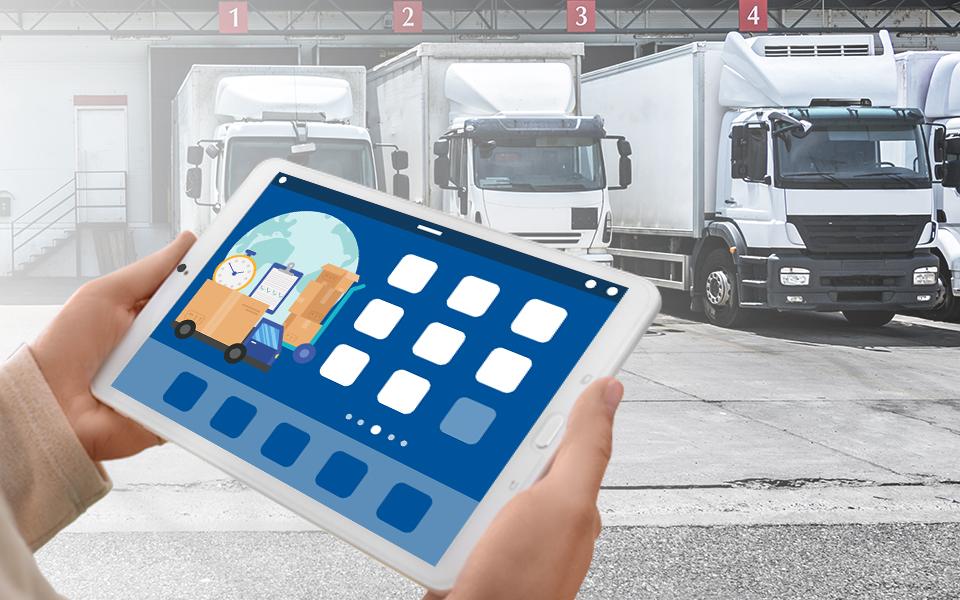The fleet industry and its management has seen rapid growth and is expected to grow three folds in the upcoming years. Almost every industry is mutually connected with the fleet industry and hence there is a huge growth potential. One such example is the IT industry that offers fleet management software and telematic solutions.

Also the transportation industry is evolving thanks to the new technologies and trends evolving every year. New digital technologies are actually widening the scope for fleet management
Here are top six fleet management trends for 2022 which comes very handy if you are fleet owners:
Top 8 Fleet Management Trends to Follow in 2022
- Electric Vehicle (EV)Expansions
- Safety Optimization
- Rise in Remote Fleet Management
- 5G Technology & its Evolution/li>
- Solar Power Fleet Tracking Devices
- Increase in usage of Telematics
- Intense Data Security
- Mobility-as-a-Service (Maas) a new trend
1.Electric Vehicle Expansions:
With emission regulations becoming tighter, the presence and usage of electric vehicles (EVs) have skyrocketed in 2021. Today, more companies have released high-end vehicle models with improved data sharing and fleet management software, and adoption of EVs will increase further in 2022. On the other hand, Autonomous Vehicles (AV) technology has also seen significant advances.
EVs are seen as a costlier option, but tax exemptions and government policies are making them more affordable. Within a few years, their pricing is expected to be the same as non-EV vehicles. The adoption of EVs brings a significant opportunity to improve productivity and increase driving hours thanks to the features offered.
2.Safety Optimization:
Safety is the first priority when it comes to fleet operations. With new advancements in fleet management software, different techniques are introduced to nullify accidents such as driver behavior analysis, alarm systems, driver identification, and geofencing.
Today, modern monitoring systems offer real-time notifications about different activities, making it easy for fleet managers to stay up-to-date with their fleet operations and respond to emergencies.
3.Rise in Remote Fleet Management:
When it comes to fleet operations, it is impossible to rely on static monitoring, and managers should find a way to monitor operations from remote locations. This is where remote fleet management is taking the stage, and many companies are relying on it. Therefore, having custom-made fleet management software will allow fleet owners to communicate with their drivers, track fleet data in real-time, and stay connected with their team. These are developed as cross-platform apps, which can be downloaded on Android and iOS devices.
4.5G Technology & its Evolution:
Thanks to its innovative technology, 5G will influence a large number of global industries, estimated to be 20 times faster than 4G. 5G technology has already been implemented in developed nations and is expected to spread globally in 2022. The expansion of this technology will revolutionize the scope of fleet management software.
Since the data sharing takes place within a few seconds communication between a fleet owner and a driver is made much faster and effective.
5.Solar Power Fleet Tracking Devices:
Solar-powered fleets have numerous advantages, especially in Return on Investment (ROI). The main factor is that solar-powered fleets use lithium batteries, which can be continuously recharged and have a better life, thereby eradicating the need for replacement batteries and helping to reduce fleet maintenance costs. Another advantage of using solar-powered fleets is that they can track offshore rigs and assets as they travel from one country to another.
6.Increase in usage of telematics:
Telematics systems help collect massive amounts of vehicle and routing data, and integrating GPS with these systems can help plan routes and monitor idle time. This feature allows fleet managers to see what’s happening in the field and, with the collected information, develop more efficient routes, thereby improving driving time and fuel consumption. The usage of telematics is expected to increase to around $75 billion by 2025 and is becoming increasingly popular in the fleet market.
7.Intense Data Security:
Fleets contain a significant amount of sensitive information that needs to be safeguarded, so fleet owners are focusing more on cybersecurity in 2021. Fleet managers are shifting their focus to tactical management and upskilling in IT. This allows them to focus on the collection and evaluation of data, as there is an increase in cybercrimes targeting data.
8.Mobility-as-a-Service (Maas) a new trend:
Mobility-as-a-Service (MaaS) will become more popular as fleet owners can customize their services. It is expected to reach 280.77 Billion USD by 2027. Using this technology, company-owned vehicles can be leased, and fleet owners can make better use of their idle vehicles, cut down their budgets, and reduce their carbon footprint. Fleet metrics will also evolve using this technology.
Conclusion:
In 2022, the fleet industry will see more innovation and advancements thanks to improvements in technologies used in fleet management software. In addition to success in your fleet, the above aspects need to be considered to increase efficiency and stay engaged with your team.
